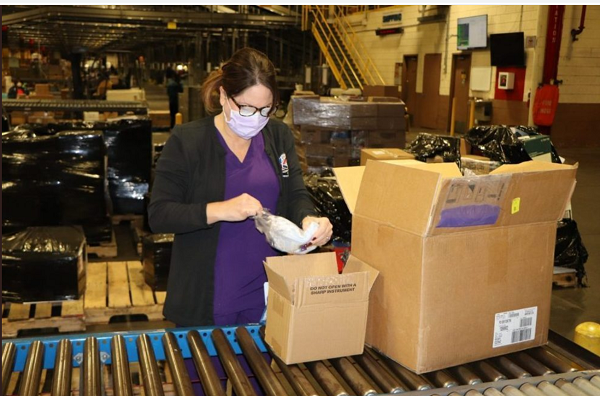Today on the Daily Grind, Stephanie H. Taylor, M.D., M. Arch, RSPH(UK), MCABE discussed the importance of air quality and HVAC in facilities during the COVID-19 pandemic and beyond. As a pediatric oncologist and a graduate of Harvard Medical, Taylor became concerned with the amount of infections that were happening in hospitals and buildings and began to think the HVAC system played a role in the spread of infection.
As a doctor she wasn’t successful communicating with facility managers. Therefore, she acquired her master’s degree in architecture and engineering so she could better understand building architecture and better communicate her concerns.
She then began to study patient outcomes in conjunction with the buildings and hospitals. To her surprise they began to accumulate data that demonstrated a decrease in infection rates in buildings with higher relative humidity. Stephanie then became associated with ASHRAE and continues to be impressed with their breadth of knowledge on the guidelines they issue.
“Ironically this pandemic is a very frightening thing. But its also an opportunity for us to really understand how important the indoor air environment is in protecting our health,” explained Taylor.
“What we’ve discovered is that’s it’s very important to humidify the indoor environment. We should all be running humidification systems whether it’s a humidifier you buy at your local pharmacy or a full building installation. We should be managing our indoor environments to maintain the relative humidity between 40 and 60%.” Three reasons why increased relative humidity is beneficial:
1. If someone who has COVID-19 enters your home or office and coughs, sneezes or even breaths, they release small aerosols into the air that are highly infectious. These tiny aerosols quickly shrink. The drier the air is in your building, the quicker and smaller they shrink. Once they become smaller, they can easily pass through the airspace, into different rooms, at a much quicker, efficient rate. Then when they enter another human, they become re-hydrated and are just as infectious. Keeping the humidity between 40%-60% decreases the ability of airborne infectious aerosols to travel.
2. In the case of this virus, for reasons we don’t quite understand yet, it (COVID-19) is less infectious in a mid-range humidity zone of 40%-60%
3. We now also know that 40%-60% relative humidity optimizes our respiratory immune system and provides some protection against the virus.
“We can all take these steps now to ensure we’re putting our best foot forward as we fight this pandemic. As counter-intuitive as it sounds, dry air is actually worse. As human beings we live with a wide range of bacteria and viruses that are beneficial to our health. So, when we dry out the air not only are we not cleaning it, we’re opening the gates for more destructive pathogens,” Taylor concluded.
For more information on the Coronavirus and the latest updates visit the Pandemic Resource Center at www.connexfm.com










